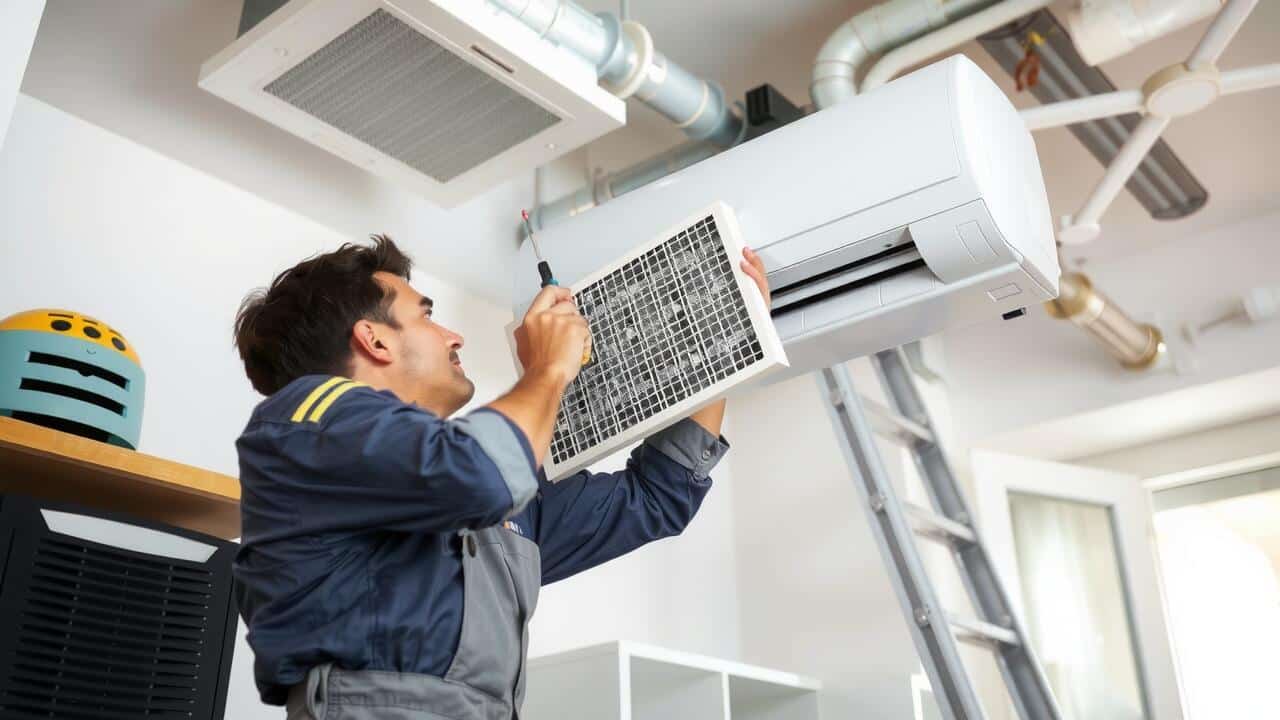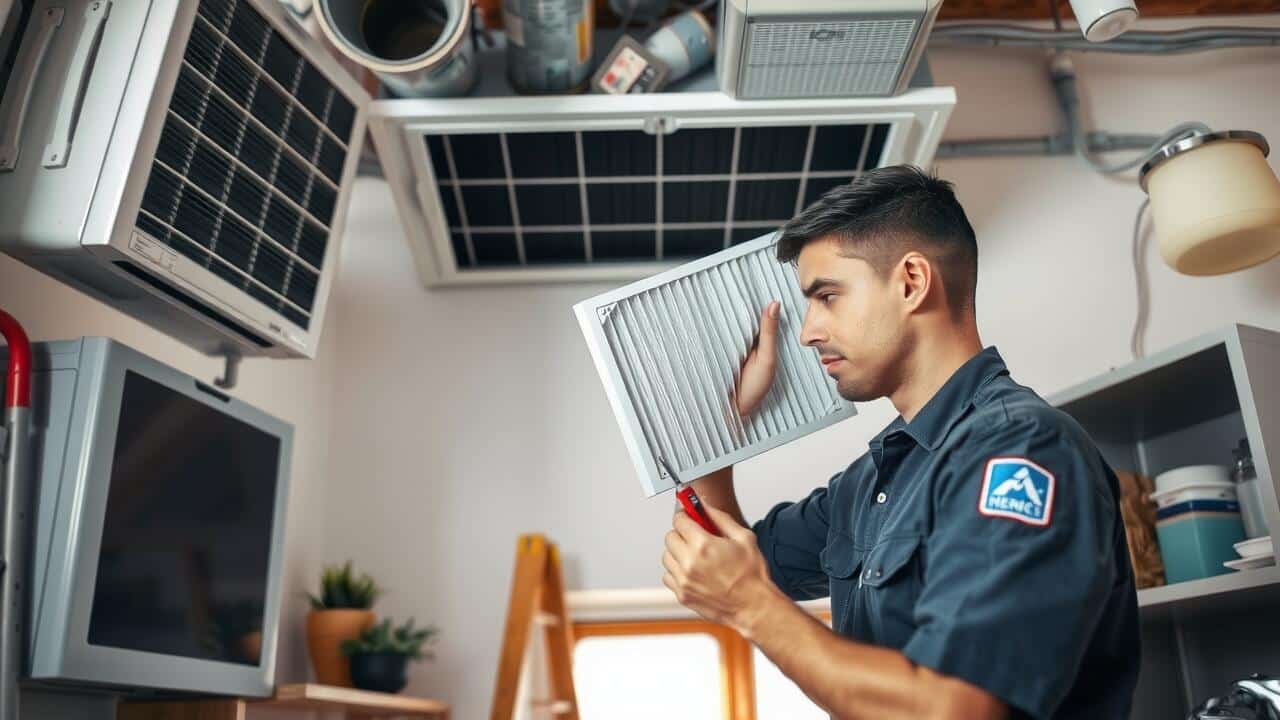
Table Of Contents
Seasonal Considerations for Air Filter Replacement
Seasonal changes play a significant role in determining how often air filters should be replaced. In the spring and fall, when allergens such as pollen and dust are more prevalent, filters may become clogged more quickly. This increased demand on the filters can lead to reduced efficiency in your heating and cooling systems. Homeowners may find it beneficial to check their filters monthly during these peak seasons to ensure optimal performance.
During summer and winter, the frequency of air filter replacement might vary depending on factors like humidity levels and heating demands. In summer, air conditioning systems work harder, attracting more dust and debris. In winter, heating systems can push particles through the air, also impacting filter conditions. Regular maintenance and timely air filter replacement contribute to a healthier indoor environment and improved energy efficiency year-round.
How Weather Affects Filter Efficiency
Weather has a significant impact on the efficiency of air filters in your home. During periods of high humidity, filters may become damp, which can lead to decreased airflow and increased resistance. In contrast, dry or dusty conditions can cause filters to clog more quickly with particles like pollen, dust, and dander, necessitating more frequent air filter replacement. Homeowners often notice that their filters stain or accumulate debris more rapidly during these changing seasons.
Temperature fluctuations also play a crucial role in air filter performance. In colder months, homes often experience reduced circulation, which can trap pollutants indoors and make air filters work harder. The increased use of heating systems may lead to a quicker build-up of contaminants, signaling the need for timely air filter replacement. Understanding these weather-related factors allows homeowners to adjust their maintenance schedules accordingly, ensuring optimal air quality throughout the year.
Choosing the Right Air Filter for Your Home
Selecting the appropriate air filter for your home is essential for maintaining optimal air quality. Consider factors such as the size of your home, the type of heating and cooling system you have, and any specific health concerns. Filters come in various MERV ratings, indicating their effectiveness at trapping particles. Higher-rated filters capture smaller airborne particles, making them suitable for households with allergens or pets.
When evaluating air filters, understand their lifespans and replacement schedules. Some filters may last up to three months, while others require monthly changes. Regular air filter replacement can improve system efficiency and enhance indoor air quality. Knowing the right filter type and replacement frequency helps ensure a healthier living environment for you and your family.
Types of Filters and Their Lifespans
Air filters come in various types, each with a distinct lifespan and function. Fiberglass filters, known for their affordability, typically last about 30 days. Pleated filters offer better efficiency and can last between 3 to 6 months. High-efficiency particulate air (HEPA) filters excel at trapping small particles and generally have a lifespan of up to a year. Understanding these differences aids homeowners in planning for timely air filter replacement.
Choosing the right filter also depends on specific household needs. Homes with pets or allergy sufferers may benefit from filters designed for improved air purification. These specialized filters may need to be replaced more frequently, sometimes every 2 to 3 months. Regular monitoring of filter condition ensures optimal performance and can prevent system strain, underlining the importance of air filter replacement within routine home maintenance.
DIY Tips for Air Filter Maintenance
Maintaining your air filter can significantly improve indoor air quality and system efficiency. Regular checks should become part of your home maintenance routine. Start by inspecting your air filter every month for visible dirt and dust buildup. Frequent checks allow you to determine how quickly the filter accumulates debris in your specific environment. This habit will help you decide when air filter replacement is necessary, ensuring your HVAC system operates smoothly.
When it comes time for air filter replacement, be prepared with the right tools and a clean workspace. First, turn off the HVAC system to avoid any accidents. Carefully remove the old filter, noting its orientation for proper installation of the new one. Select a high-quality filter that matches your system’s specifications. Proper replacement not only extends the lifespan of your HVAC unit but also promotes a healthier living space for you and your family.
Steps to Replace Your Air Filter Properly
To ensure proper air circulation and efficiency in your HVAC system, follow these steps for air filter replacement. Begin by turning off your heating or cooling system to avoid any potential hazards. Locate the air filter compartment, typically found near the air handler or furnace. Remove the old filter by pulling it out gently. Be cautious of any dust and debris that may have accumulated around the filter area.
Once the old filter is out, take a moment to clean the compartment. This will help to enhance the performance of the new filter. Insert the new air filter, making sure to align it in the correct direction according to the airflow arrows marked on the filter frame. Finally, secure the compartment cover and turn your HVAC system back on. Regular air filter replacement contributes to maintaining good air quality and prolonging the life of your HVAC equipment.
FAQS
How often should I change my air filters?
It is generally recommended to change your air filters every 1 to 3 months, depending on factors such as the type of filter, usage, and the air quality in your home.
What factors can affect the lifespan of an air filter?
Factors that can affect the lifespan of an air filter include the type of filter, the frequency of HVAC system use, pet dander, dust levels in your home, and seasonal changes.
Can I clean and reuse my air filter instead of replacing it?
Some filters, like washable filters, can be cleaned and reused. However, most disposable filters should not be cleaned and should be replaced according to the manufacturer’s recommendations.
How do I know when it’s time to change my air filter?
Signs that it’s time to change your air filter include reduced airflow, visible dirt and dust accumulation on the filter, and an increase in allergy symptoms in your home.
What type of air filter is best for my home?
The best air filter for your home depends on your specific needs, such as allergy concerns or pet hair. High-efficiency filters like HEPA filters are great for trapping allergens, while pleated filters offer a good balance of efficiency and affordability.
